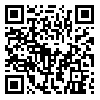جلد 5، شماره 2 - ( پاییز و زمستان 1403 )
جلد 5 شماره 2 صفحات 445-421 |
برگشت به فهرست نسخه ها
Download citation:
BibTeX | RIS | EndNote | Medlars | ProCite | Reference Manager | RefWorks
Send citation to:



BibTeX | RIS | EndNote | Medlars | ProCite | Reference Manager | RefWorks
Send citation to:
Mahdavi Azadboni R. Ontological Analysis of the Distinction between Understanding and Knowledge. پژوهش های مابعدالطبیعی 2024; 5 (2) :421-445
URL: http://mi.khu.ac.ir/article-1-315-fa.html
URL: http://mi.khu.ac.ir/article-1-315-fa.html
مهدوی آزادبنی رمضان. تحلیل هستیشناختی پیرامون تمایز فهم و معرفت. پژوهش های مابعدالطبیعی. 1403; 5 (2) :421-445
گروه فلسفه و کلام اسلامی، دانشگاه مازندران ، r.mahdavi@umz.ac.ir
چکیده: (836 مشاهده)
از زمان افلاطون و ارسطو، تلاشهایی دربارۀ امکان معرفت و بیان چیستی آن در مقابل منکران امکان کسب معرفت آغاز شده بود. مسألۀ محوری در این رابطه، یافتن عناصر سازنده معرفت بود و تصویر سنتی دربارۀ چیستی آن با توجه به ریشۀ افلاطونی آن بیان میکند که معرفت عبارت است از «باور صادق موجه». در حالی که از یونان باستان تا قرن بیستم تصویر یاد شده دربارۀ چیستی معرفت در معرفتشناسی فلسفۀ غرب رایج بود، اما برخی نیز در برابر واژه «معرفت» به واژه «فهم» توجه نموده و معرفت را برای پاسخ به ظرفیت و توانمندیهای شناختی انسان ناکافی در نظر گرفتند و به جای آن بر فهم تأکید نمودند. هدف پژوهش حاضر پرداختن به تمایز فهم و معرفت بهعنوان دو ظرفیت متفاوت در پاسخگویی به ظرفیت و کنجکاویهای شناختی انسان است. این پژوهش با روش توصیفی – تحلیلی و با رویکرد انتقادی انجام گردیده و نتیجه به دست آمده نشان میدهد که فهم نه مساوی با معرفت است و نه قسمی از آن. نویسنده تلاش میکند، تا با تکیه بر خصیصۀ هستیشناختی استدلال نماید که فهم در مغایرت با معرفت که انتقالپذیر است، انتقالناپذیر است.
نوع مطالعه: مقاله پژوهشی |
موضوع مقاله:
فلسفی
فهرست منابع
1. استیس، والتر، ترنس (1385)، تاریخ انتقادی فلسفۀ یونان، ترجمۀ یوسف شاقول، چاپ اول، قم: انتشارات دانشگاه مفید.
2. مهدوی آزادبنی، رمضان (1395)، مبانی معرفتی عصر جدید و پسامدرن (با نظری به جایگاه دین در آن)، چاپ اول، تهران: جهاد دانشگاهی.
3. Aristotle, (1924), "The Works of Aristotle" Vol. & Metaphysics, trans. W. D. Ross, Oxford: Clarendon press.
4. Baker, L. R. (2003), Third PersonUnderstanding in A. Sanford(ed), The Nature and Limits of Human Understanding. London: Continuum.
5. Burnyeat, Myles F., 1980, "Socrates and the Jury: Paradoxes in Plato's Distinction between Knowledge and True Belief", Proceedings of the Aristotelian Society Supplement, 54: 173-191. [DOI:10.1093/aristoteliansupp/54.1.173]
6. Carter, J. Adam, and Emma Gordon, (1982),"Objectual Understanding and the Value Problem", American Philosophical.
7. Cornnor, D. S. (1982), Introduction to the Theory of Knowledge, Harvester Press.
8. Gettier, Edmound. (1963), Is Justified True Belief Knowledge? Analysis, 23:121-23, 1963. [DOI:10.1093/analys/23.6.121]
9. Grimm, Stephen (2006), Is Understanding a Species of Knowledge? ", British Journal of Science 57, 515-535.2006. [DOI:10.1093/bjps/axl015]
10. Grimm, Stephen, (2001), "Understanding", The Stanford Encyclopedia of Philosophy (Summer 2021 Edition), Edward
11. Grimm, Stephen, (2020), "Transmitting Understanding and Know-How", in Hetherington and Smith 2020: 124-139. [DOI:10.4324/9780429344138-9]
12. Hemple, Carl, (1965), Aspects of Scientific Explanation and Other Essays in the Philosophy of Science, New York:
13. Hills, Alison (2010), The Beloved Self, Oxford: Oxford University Press. [DOI:10.1093/acprof:oso/9780199213306.001.0001]
14. Hills, Alison, (2009), "Moral Testimony and Moral Epistemology", Ethics, 120(1): 94-127. [DOI:10.1086/648610]
15. Ismael, Jennan, (2018), "Why (Study) the Humanities? The View from Science", in Grimm 2018: 177-193.
16. Kelp, Christoph, (2015), "Understanding Phenomena", Synthese, 192(12): 3799-3816. [DOI:10.1007/s11229-014-0616-x]
17. Kvanvig, Jonathan L, (2009), "The Value of Understanding", in Haddock, Millar, and Pritchard 2009: 95-111. [DOI:10.1093/acprof:oso/9780199231188.003.0005]
18. Kvanvig, Jonathan L., (2003), The Value of Knowledge and the Pursuit of Understanding, New York: Cambridge [DOI:10.1017/CBO9780511498909]
19. Large, William, (2008), "Study Aids." In Heidegger's 'Being and Time'. Bloomington: Indiana University Press. 105-127. [DOI:10.1515/9780748631452-007]
20. Lawler, Insa, (2019), Understanding Why, Knowing Why, and Cognitive Achievements, Synthese, 196(11): 4583-460 [DOI:10.1007/s11229-017-1672-9]
21. Longworth, G. 2008), Linguistic Understanding and Knowledge, Nous 42(2008):50-79 MA: Blackwell Publishing. pp. 292-300 [DOI:10.1111/j.1468-0068.2007.00673.x]
22. Heidegger, Martin, (1986), "Phenomenology and Fundamental Ontology: The Disclosure of Meaning," In The Hermeneutics Reader, ed. K Mueller-Vollmer (Oxford: Basil Blackwell, 221.
23. Heidegger, Martin, (1962), "The Phenomenological Method of Investigation," in Being and Time, trans. John Macquarrie and Edward Robinson , Oxford: Blackwell.
24. N. Zalta (ed.), URL =
25. Plato, (1928), Theaetetus, in the work of Plato, ed by Irwin Edman, Random House: The Modern Library.
26. Pojman, (2002), fifth, Oxford University Press.
27. Pritchard, Duncan, 2009, "Knowledge, Understanding and Epistemic Value", Royal Institute of Philosophy Supplement, 64: 19-43. [DOI:10.1017/S1358246109000046]
28. Pritchard, Duncann, (2016), Seeing It for Oneself: Perceptual Knowledge, Understanding, and Intellectual Autonomy", Quarterly 51(1): 1-13.2014. [DOI:10.1017/epi.2015.59]
29. Quine, Willard , (2004), Epistemology Naturalized, In E. Sosa & J. Kim (ed.). Epistemology: An Anthology. Malden,
30. Responsibility, and Virtue, ed by Matthias Steup, New York: Oxford University Press, pp. 235-252, 2001.
31. Riggs, Wayne, "Understanding 'Virtue' and the Virtue of Understanding", in Intellectual Virtue: Perspectives From
32. Rorty, Richard, (2002), Dismantling Truth: Solidarity versus Objectivity, in Philosophy: The Quest for Truth, ed by Steven M. Cahn, Oxford University Press.
33. Thomas Sheehan, (2003),"Reading a Life: Heidegger and Hard Times," in The Cambridge Companion to Heidegger, ed. Charles Guignon (Cambridge: Cambridge University Press.
34. Wilkenfeld, Daniel .A. and Tania Lombrozo, (2020), "Explanation Classification Depends on Understanding: Extending the Epistemic Side-Effect Effect", Synthese, 197(6): 2565-2592. [DOI:10.1007/s11229-018-1835-3]
35. Woodward, James, (2003), Making Things Happen: A Theory of Causal Explanation, New York: Oxford University Press. [DOI:10.1093/0195155270.001.0001]
36. Zagzebski, Linda, (2009), "On Epistemology", Belmont, CA: Wadsworth.
37. Zagzebski, Linda, (2001), Recovering Understanding", in Knowledge, Truth, and Duty: Essays on Epistemic Justification. [DOI:10.1093/0195128923.003.0015]
ارسال پیام به نویسنده مسئول
| بازنشر اطلاعات | |
 |
این مقاله تحت شرایط Creative Commons Attribution-NonCommercial 4.0 International License قابل بازنشر است. |











